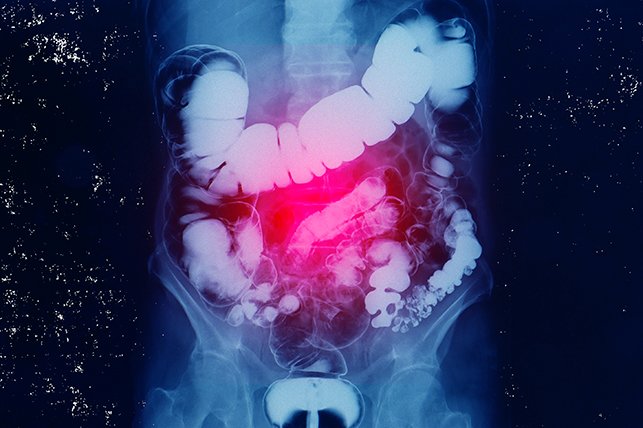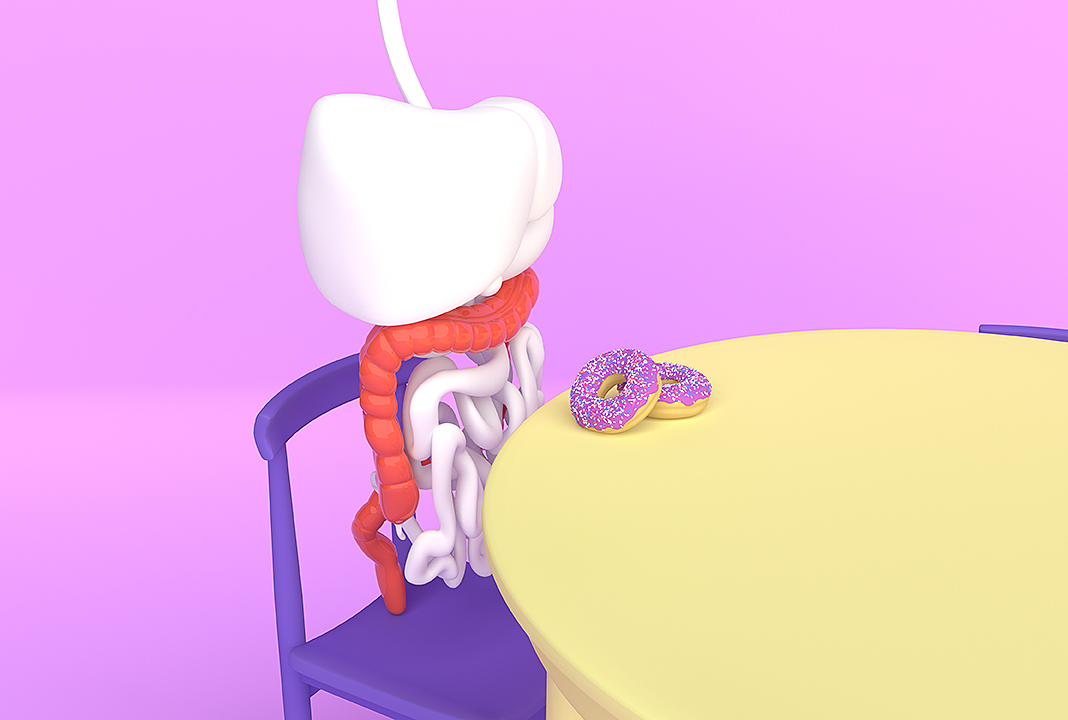Learn the Symptoms of Ulcerative Colitis and How It's Diagnosed

Ulcerative colitis (UC) is a chronic inflammatory bowel disease (IBD) that causes inflammation and ulcers to form in the inner lining of the large intestine, including the rectum and the colon. It occurs when an overactive immune system attacks the healthy colon, causing it to become inflamed.
Given the disease's location and its symptoms and side effects, people with UC are likely to experience sexual health effects, including pain, erectile issues, lack of sex drive, anxiety and depression.
If you're having gut issues, it could be UC, so it's important to understand the symptoms of ulcerative colitis. You also might want to know what kinds of tests you may undergo to arrive at a diagnosis.
Symptoms of ulcerative colitis
One of the tricky things about UC is its symptoms may resemble those of other stomach disorders or even just an upset stomach.
While symptoms of ulcerative colitis may go into remission, there's no permanent cure for the condition. If you experience similar symptoms that reoccur or seem to gradually worsen over time, it's a good idea to see a doctor.
Common symptoms of UC include:
- Frequent and sustained diarrhea
- Blood in the stool
- Abdominal cramping
- Pain and fatigue
"Patients with active ulcerative colitis often feel low energy and poor appetite as well," said Ori Rackovsky, M.D., a gastroenterologist at Gastroenterology Associates of New Jersey.
Other potential symptoms of UC include bloating, urgency, a feeling of an incomplete bowel movement even though the urge to go is there, weight loss, extreme fatigue and, sometimes, fever.
People with ulcerative colitis may experience many of these symptoms or just a few.
Diagnosing ulcerative colitis
Ulcerative colitis is considered an autoimmune disorder, meaning it is caused by a person's own immune system rather than a bacteria or virus, Rackovsky said.
"In this case, the immune system, which is very powerful, is erroneously attacking the large intestine and causing damage," he explained.
Several steps must be taken to diagnose UC.
Blood panels and stool samples
While autoimmune disorders don't have cures, they can be diagnosed and treated.
If your doctor suspects you have ulcerative colitis, they may start with a blood panel or stool sample, Rackovsky explained. A blood draw can check for anemia, which may be a symptom of UC—it's also a common symptom of another form of IBD, Crohn's disease—and it can also check for any vitamin deficiencies.
A stool sample may be primarily used to rule out other complications, such as a parasite, though white blood cells in the stool may be a sign of ulcerative colitis.
Endoscopic procedures
"The primary tool for diagnosis is a procedure called a colonoscopy, in which a camera is passed into the large intestine so that it can be viewed directly," Rackovsky said. "During this procedure, a specialized physician called a gastroenterologist will look carefully at the inside of the intestine to evaluate for signs of ongoing inflammation.
"Additionally, samples of the lining of the intestine, called biopsies, can be taken in order to evaluate for the typical signs of UC under a microscope," he added.
Endoscopic procedures that include tissue biopsy are the only surefire ways to diagnose ulcerative colitis. In addition to a colonoscopy, the other common endoscopic procedure is a flexible sigmoidoscopy. This procedure uses a lighted, thin, flexible tube inserted into the rectum.
The doctor is able to look at the end of the colon. A flexible sigmoidoscopy may be performed instead of a colonoscopy if the inflammation of the colon is severe. This procedure measures the level of bowel inflammation and is a crucial step in diagnosing UC.
X-rays
An X-ray may also be taken to look for signs of ulcerative colitis or to track its progress. These images can detect changes in the shape of the intestines (widening or narrowing), perforations or inflammation, all of which may be attributed to UC.
Getting a diagnosis may not cure ulcerative colitis, but it can help you manage your symptoms and can be helpful for insurance purposes. Once you have the diagnosis, you and your doctor can come up with a plan to manage symptoms. In some cases, steroids, aminosalicylates or immunosuppressants may be prescribed.
Treatment for UC includes drug therapy and, if that's not successful, surgery to remove the affected tissue.


















